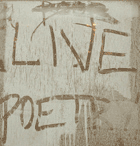From the Archives
(July 2005) I told myself on the way into work today that I will post a blog entry even if it causes me to miss a deadline. I like stepping back for a few minutes to ponder my life instead of just living on frantic autopilot but, right now, life is interfering with my ability to contemplate at all.
I returned to town last week, but have been so slammed with commitments ever since that I’ve barely written anything. This is exactly what I want to change in my life.
I wrote earlier about Rob Brezsny’s book
Pronoia , of which one reviewer wrote:
Human beings are selfish, small-minded, violence-prone savages; civilization is a blight on the earth; the rising tide of chaos that surrounds us on all sides ensures that everything's going to fall apart any day now. Right? Wrong, says Rob Brezsny. In fact, evil is boring. Cynicism is stupid. Despair is lazy. The truth is that the universe is inherently friendly. Life is a sublime game created for our amusement and illumination, and it always gives us exactly what we need, exactly when we need it.
But Brezsny's buoyant perspective is not rooted in denial. On the contrary, he builds a case for a cagey optimism that does not require a repression of difficulty but rather seeks a vigorous engagement with it.
Brezsny's rowdy and erudite astrology column, Free Will Astrology, has been the most widely syndicated feature in North America's alternative newsweeklies for years. In this book, he unfurls the fullness of the subversive compassion that underlies the column.
Life is created for our amusement? I believe that the earth is, if anything, indifferent to humans and that, frankly, it really ought to be trying to actively get rid of us before we completely destroy it. So no, I don’t believe that the Earth exists for our amusement. I do find illumination in nature, however.
Of course, Rob was probably saying that the purpose of our lives, which exist in nature, is illumination—which nature can provide. If that’s the case, then I’m down with him.
Relationships, connection, illumination, creation, insight really do seem to be all that matter in the end, and everything else is just fluff that will float away like so many dandelion blooms when we come face to face with our core selves or the cold hard hand of death or fatal illness.
MORE FROM PRONOIA
”If you bring forth the genius within you," said Jesus in the Gnostic Gospel of Thomas, "it will free you. If you do not bring forth the genius within you, it will destroy you." Is there any aspect of the genius within you that you're not bringing forth? If so, what can you do to change that?
I’m trying, trying, trying to bring forth the genius within me and to get back to a place where I can write and make art and have a family and still pay my bills. There MUST be a way!
Meanwhile, here’s another of Rob’s Sacred Advertisements:
You're a star—and so am I. I'm a genius—and so are you. Your success encourages my brilliance, and my charisma enhances your power. Your victory doesn't require my defeat, and vice versa. Those are the rules in the New World—quite unlike the rules in the Old World, where zero-sum games are the norm, and only one of us can win each time we play. In the New World, you don't have to play down or apologize for your prowess, because you love it when other people shine. You exult in your own excellence without regarding it as a sign of inherent superiority. As you ripen more and more of your latent aptitude, you inspire the rest of us to claim our own idiosyncratic magnificence.
also
Even if you're an intellectual atheist who doesn't believe in mysteries you can't see, I encourage you to make Artemis your ally. The goddess of wild places, she asks you to believe that the best place to rest and recharge is not a luxurious spa where all your needs are attended to, but rather a lush wilderness deep in the middle of nowhere. Artemis loves the animals, and she loves the animal in you. She arouses your instinctual fertility, which may fill you with a kind of longing that awakens your creativity. A fierce nurturer, she feeds your soul by stirring your sense of adventure. She unleashes the wild woman within you, even if you're a man.
and
At the heart of the pronoiac way of life is an apparent conundrum: You can have anything you want if you'll just ask for it in an unselfish way. The trick to making this work is to locate where your deepest ambition coincides with the greatest gift you have to give. Figure out exactly how the universe, by providing you with abundance, can improve the lot of everyone whose life you touch. Seek the fulfillment of your fondest desires in such a way that you become a fount of blessings.
BEST-OF SPAM: bark, you maybe need ittt
LISTENING TO: Sibelius, the Swan of Tuonela, Op. 22, No. 3, Andante moto sostenuto

